Nursery News |
| 06/10/2023 |
| 01/12/2023 |
| 15/12/2023 |
| 09/02/2024 |
| 08/03/2024 |
| 09/03/2024 AM |
| 09/03/2024 PM |
| 26/04/2024 AM |
| 26/04/2024 PM |
Nursery News |
| 06/10/2023 |
| 01/12/2023 |
| 15/12/2023 |
| 09/02/2024 |
| 08/03/2024 |
| 09/03/2024 AM |
| 09/03/2024 PM |
| 26/04/2024 AM |
| 26/04/2024 PM |
SMSC stands for Spiritual, Moral, Social and Cultural Development.
At Highcliffe Primary, we recognise that the personal development of pupils, spiritually, morally, socially and culturally, plays a significant part in their ability to learn and achieve. We, therefore, aim to provide an education that provides children with opportunities to explore and develop their own values and beliefs, spiritual awareness, high standards of personal behaviour, a positive caring attitude towards other people, an understanding of social and cultural traditions and an appreciation of the diversity and richness of other cultures.
Spiritual Development
As a school community we aim to provide opportunities for pupils to:
· Build self-esteem and non-material well-being;
· Develop the capacity for critical and independent thought;
· Express and discuss feelings, beliefs, values and response to personal experiences;
· Experience moments of stillness and reflection;
· Form and maintain positive and satisfying relationships;
· Reflect on, consider and celebrate the wonders and mysteries of life.
Moral Development
As a school community we aim to provide opportunities for pupils to:
· Distinguish between right and wrong;
· Take initiative and act responsibly, with consideration for others;
· Listen and respond appropriately to the views of others;
· Gain the confidence to cope with setbacks and to learn from mistakes;
· Reflect on the consequences of their actions;
· Apologise and to forgive - themselves and others;
· Show respect for the environment.
Social Development
As a school community we aim to provide opportunities for pupils to:
· Display a sense of belonging and an increasing willingness to participate;
· Make an active contribution to democratic processes;
· Develop an understanding of individual and group identity;
· Begin to understand the place they have within society and the role they need to play;
· Develop their compassion for others in society;
· Take initiative on wider social issues and establish ways they can help on an individual, local, national and global scale.
Cultural Development
As a school community we aim to provide opportunities for pupils to:
· Recognise the values and richness of cultural diversity in Britain and how this influences individuals and society;
· Recognise and respect world faiths and beliefs, and understand the impact they have upon culture;
· Develop an understanding of Britain’s local, national, European and global dimensions.
At Highcliffe, we offer a wide range of extra-curricular activities and opportunities for all children.
Morning and Lunchtime Clubs
We run morning football clubs twice a week and lunch time clubs every day – football with the coaches outside, and volley ball and basketball inside. Choir and Times Tables Rockstars clubs also take place each week during lunch. We run a family Book and Breakfast each Friday.
After School Clubs
After school we run clubs five nights a week.
For Key Stage 1 we run a Book and a Biscuit club which encourages a love of stories and reading. We also run a Busy Builders club to encourage budding young builders and engineers to practise their construction skills.
For Key Stage 2 children we run French, Maths, Hockey, Performing Arts, Cricket and Netball Clubs.
Educational Visits and Awareness Days
Educational day trips linked to curriculum content are taken throughout the year for every year group. We have strong links with our local church and visit different places of worship to support the understanding of different faiths and cultures. The school also supports a wide range of charities across the year, as well as taking part in awareness days, to ensure that our children are fully inclusive of the differences represented in our school. They know that we are all different, but all equal and that we celebrate this.
Sporting Trips
The children have also had the opportunity to go on trips to football, ice hockey and basket ball matches at weekends, run by staff over the past year.
Residential Trips
We offer residential trips for children from Year 4 to Y6 to Whitby, Carlton Outdoor Centre and Edinburgh respectively.
Representing Highcliffe
The children have been invited regularly to represent Highcliffe in our choir and in sporting teams. Our performing arts children have taken part in a recent dance festival and have performed for our wider school community.
School Council work in the local community
Our school council are active members of the community, with regular litter picking sessions. Last year, they lined a nearby street with bird boxes.
Through our Eco Schools initiative, the children are being taught to appreciate and take responsibility for their local environment and a group of children enjoyed their bird watching session recently.
Our Early Years Foundation Stage is the starting point of a child’s journey in school. Children in our setting range from the age of three up to five. This section of the website will share the curriculum (the planned learning) for children in our Nursery and Reception classes. We hope that you find this information helpful. Please see the admissions section for details on applying for a nursery/ school place or the new starters section for useful information.
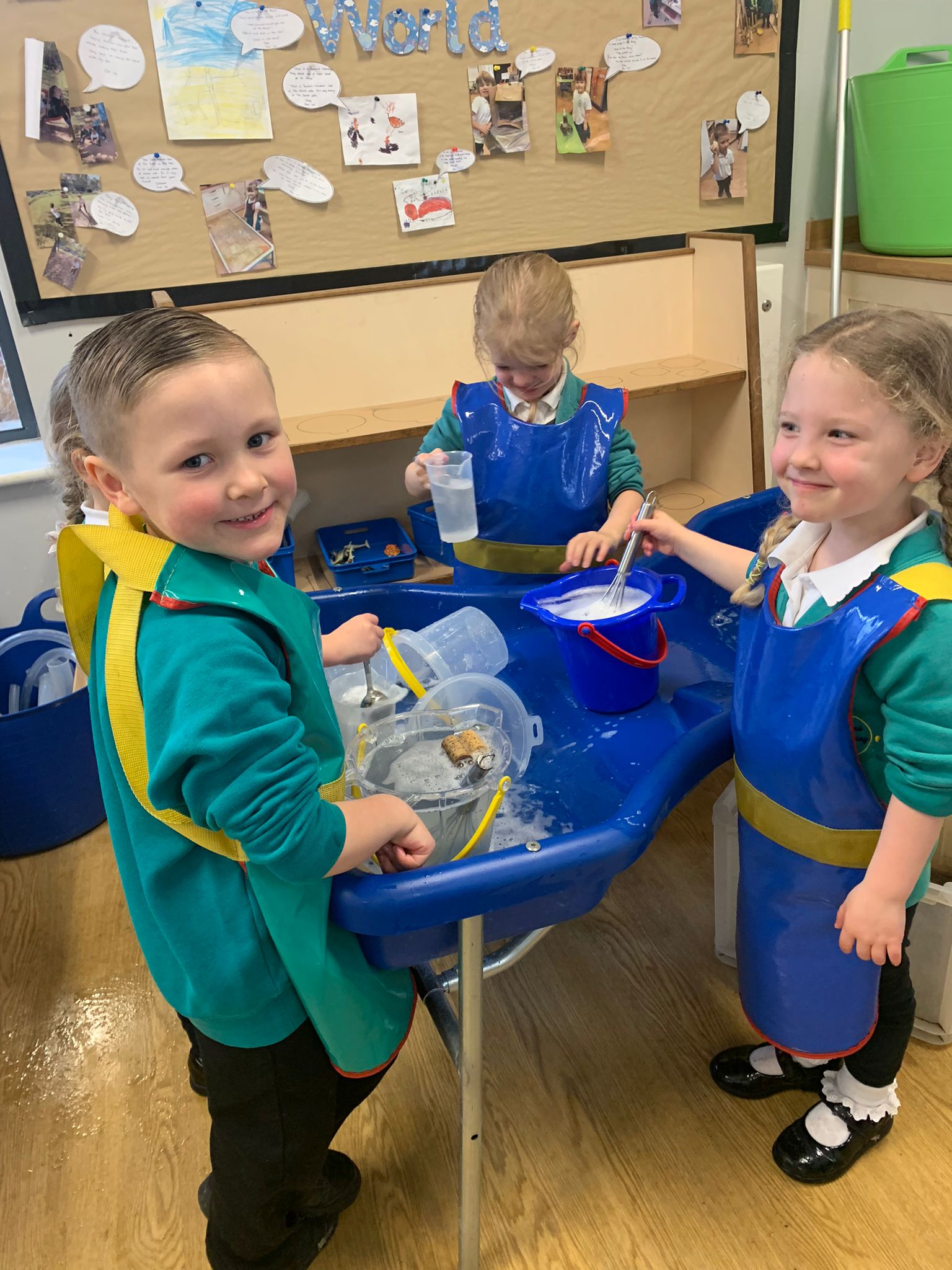 |
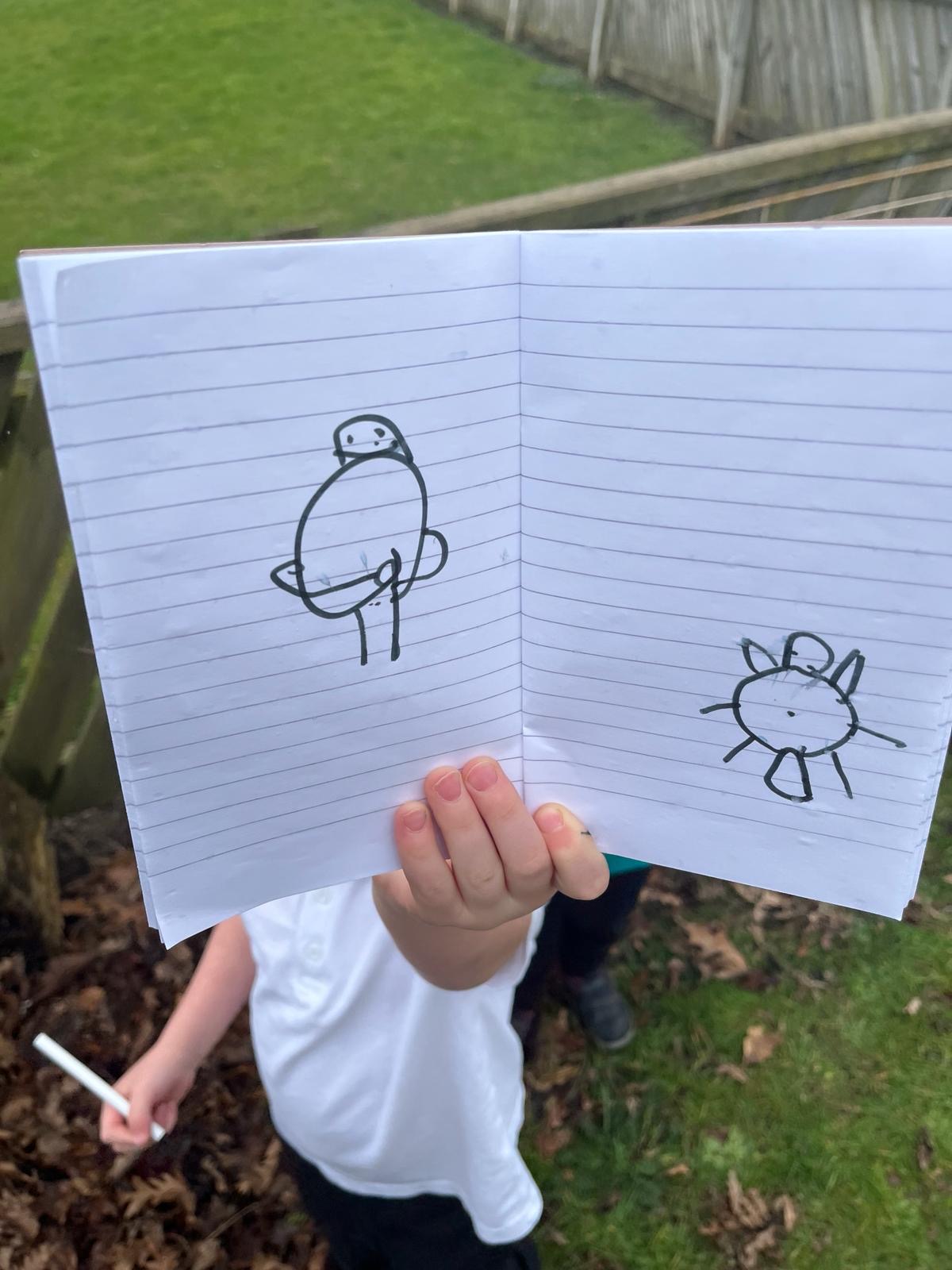 |
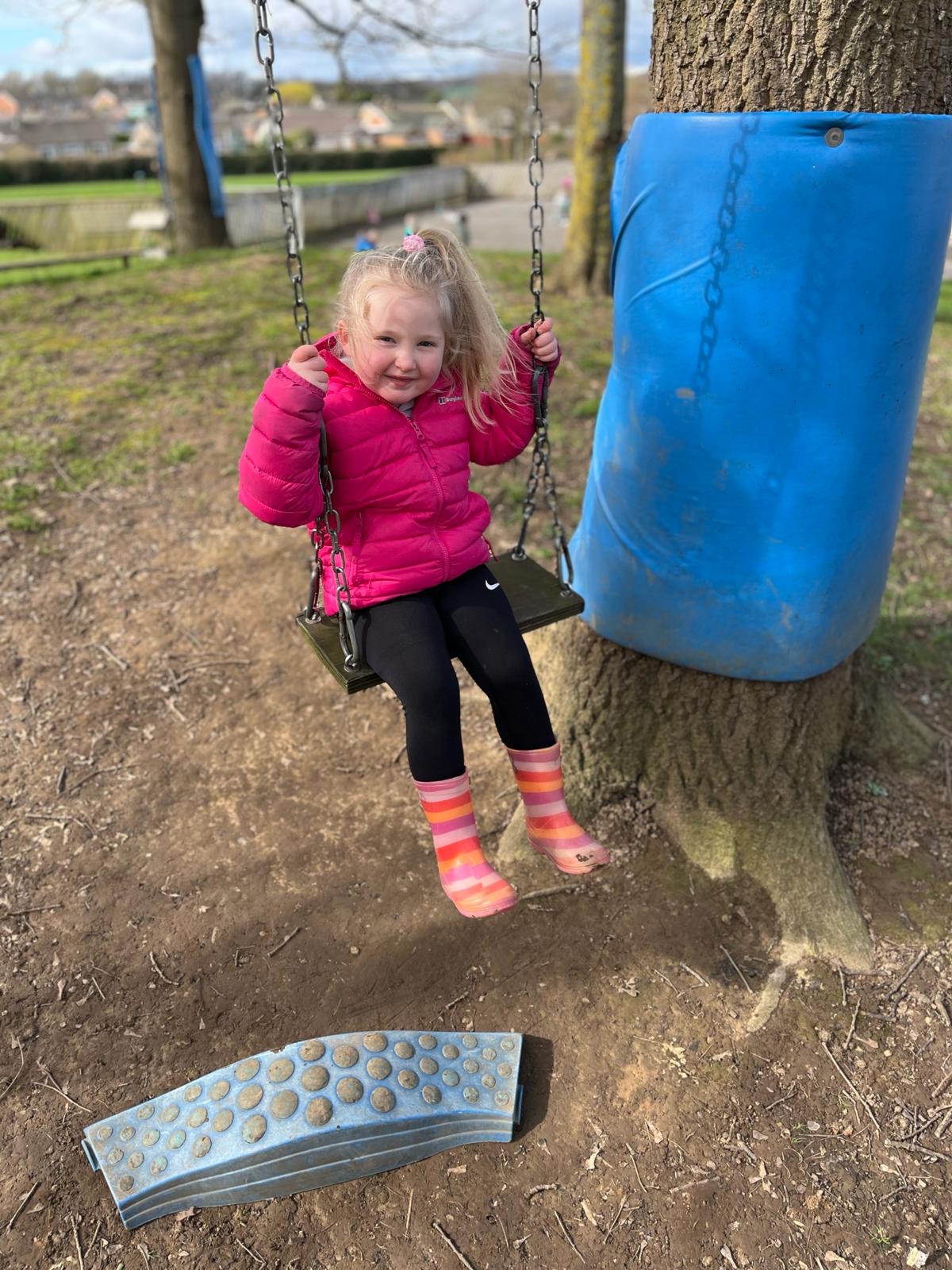 |
‘Every child deserves the best possible start in life and the support that enables them to fulfil their potential. Children develop quickly in the early years and a child’s experiences between birth and age five have a major impact on their future life chances. A secure, safe and happy childhood is important in its own right. Good parenting and high-quality early learning together provide the foundation children need to make the most of their abilities and talents as they grow up.’
(Statutory framework for the early years foundation stage. 2021)
Early childhood is the foundation on which children build the rest of their lives. Our ethos is that, with belief and hard work, anything is possible – this is also our school motto.
Our School Values, the 3R’s underpin everything we do and are introduced to our families from the moment we meet them.
We help our children to: respect themselves and others; develop a positive self-image; learn about relationships and the importance of friendships; learn to share; take turns; play fairly; develop an understanding of what is right, what is wrong, and why; care for others and respect their feelings, culture and beliefs.
We foster resilience in our children by providing them with materials, resources, motivation and support they need. We support stable and positive relationships between our children and their families and other adults within the community. We are fostering self-regulation skills that enable children to direct their attention, manage emotions, keep track of rules, inhibit their impulses, and control their behaviour in other adaptive ways.
Children often feel empowered when they are given a small responsibility and take their role very seriously. This leads to children with increased confidence, maturity and self-esteem - all of which are important in creating active learners and supporting development in all areas of the EYFS.
The aims of the Early Foundation Stage at Highcliffe Primary School are:
To provide children with access to a broad and balanced high-quality curriculum in line with the Early Years Foundation Guidance;
To recognise that the Foundation Stage is critical in a child’s physical, intellectual, emotional and social development;
To support children to make a planned confident transition from home to school;
To plan learning experiences that meet the individual needs and interests of the children through a balanced provision of adult led and child initiated opportunities;
To provide quality and consistent teaching and learning opportunities so that every child can become competent and confident learners and enable them to reach their full potential;
To work closely with parents and other care providers in an atmosphere of mutual respect;
To include all children, irrespective of ability, gender, ethnic, religious, cultural or social background or special educational needs.
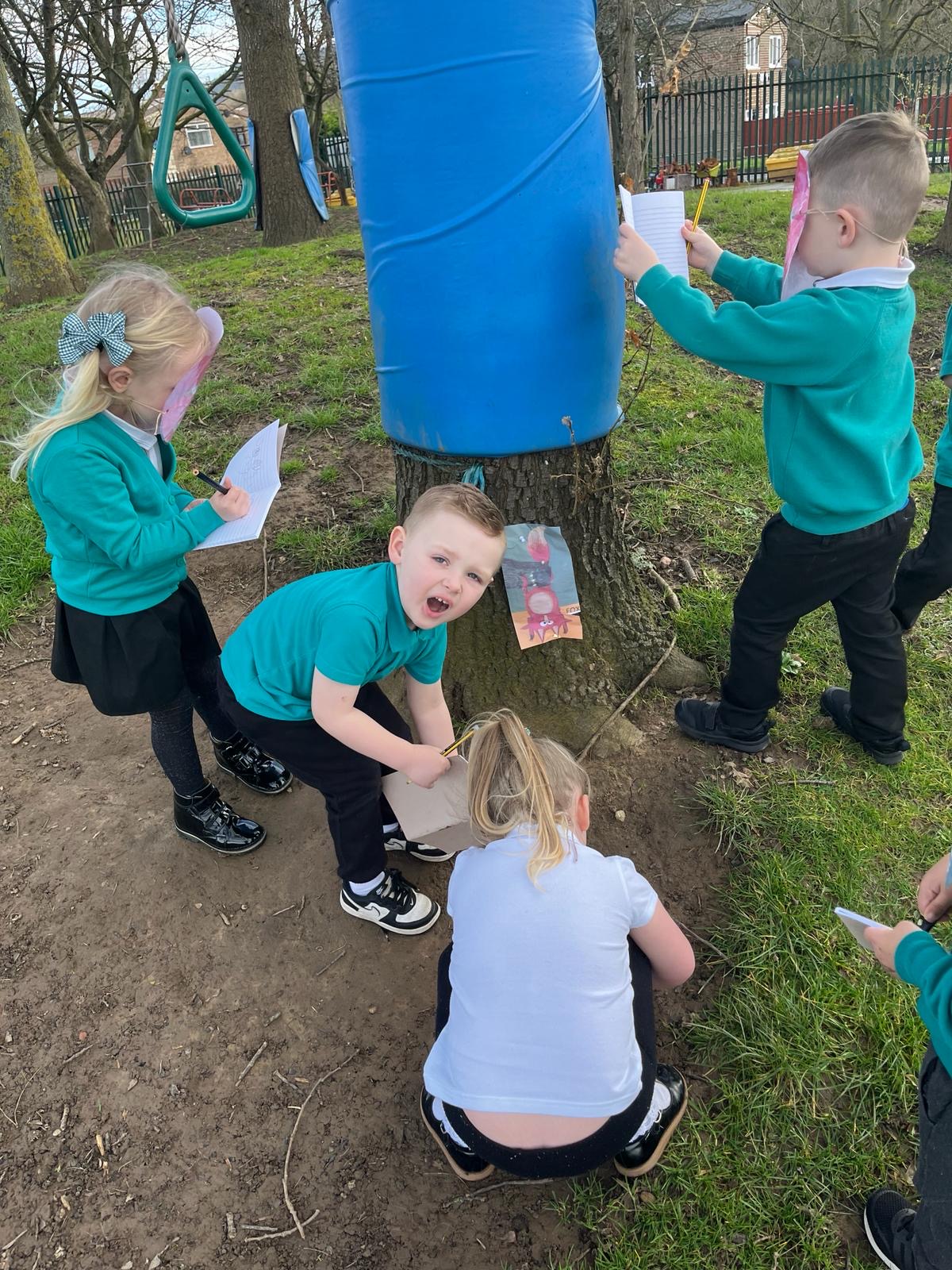 |
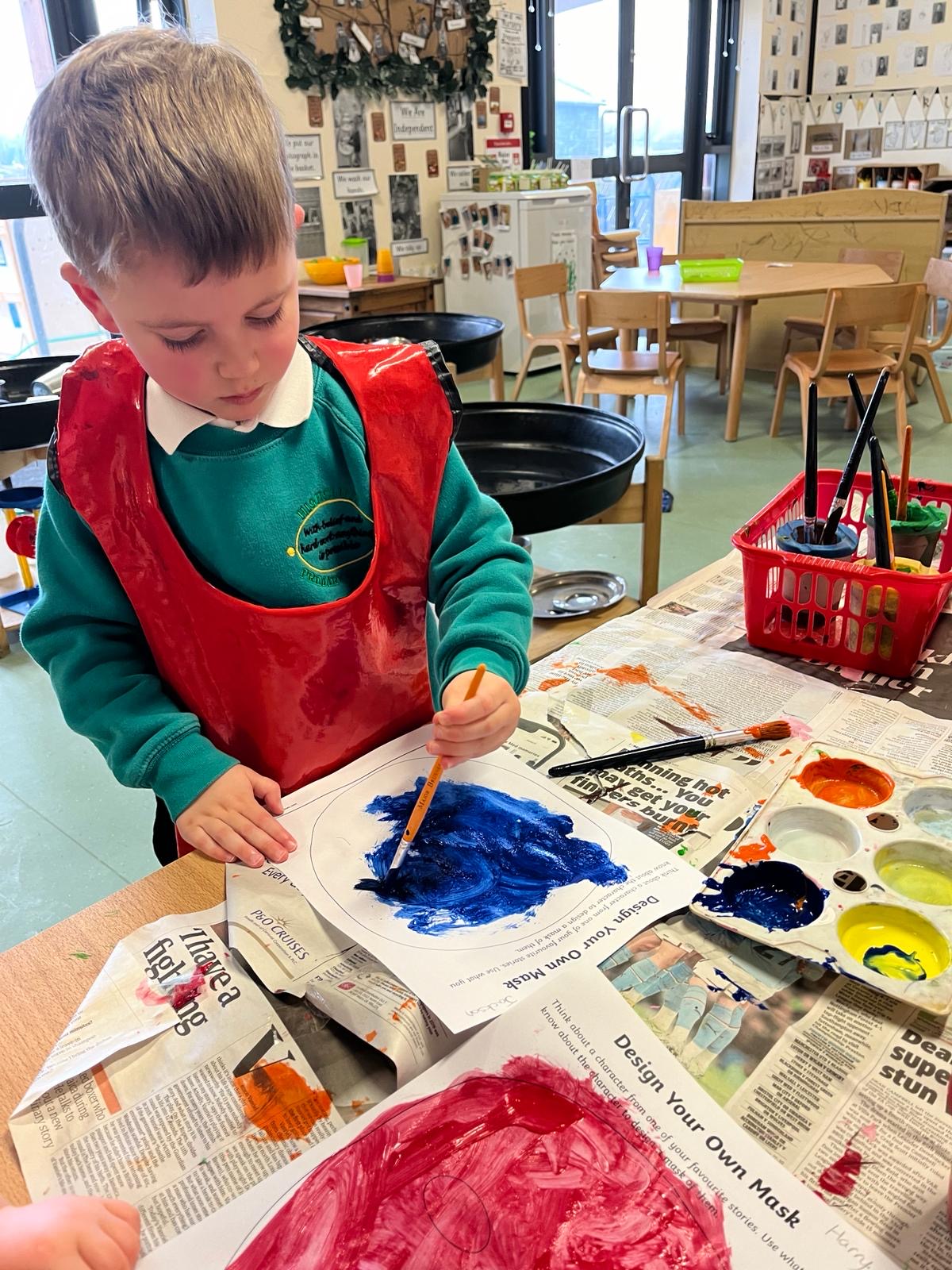 |
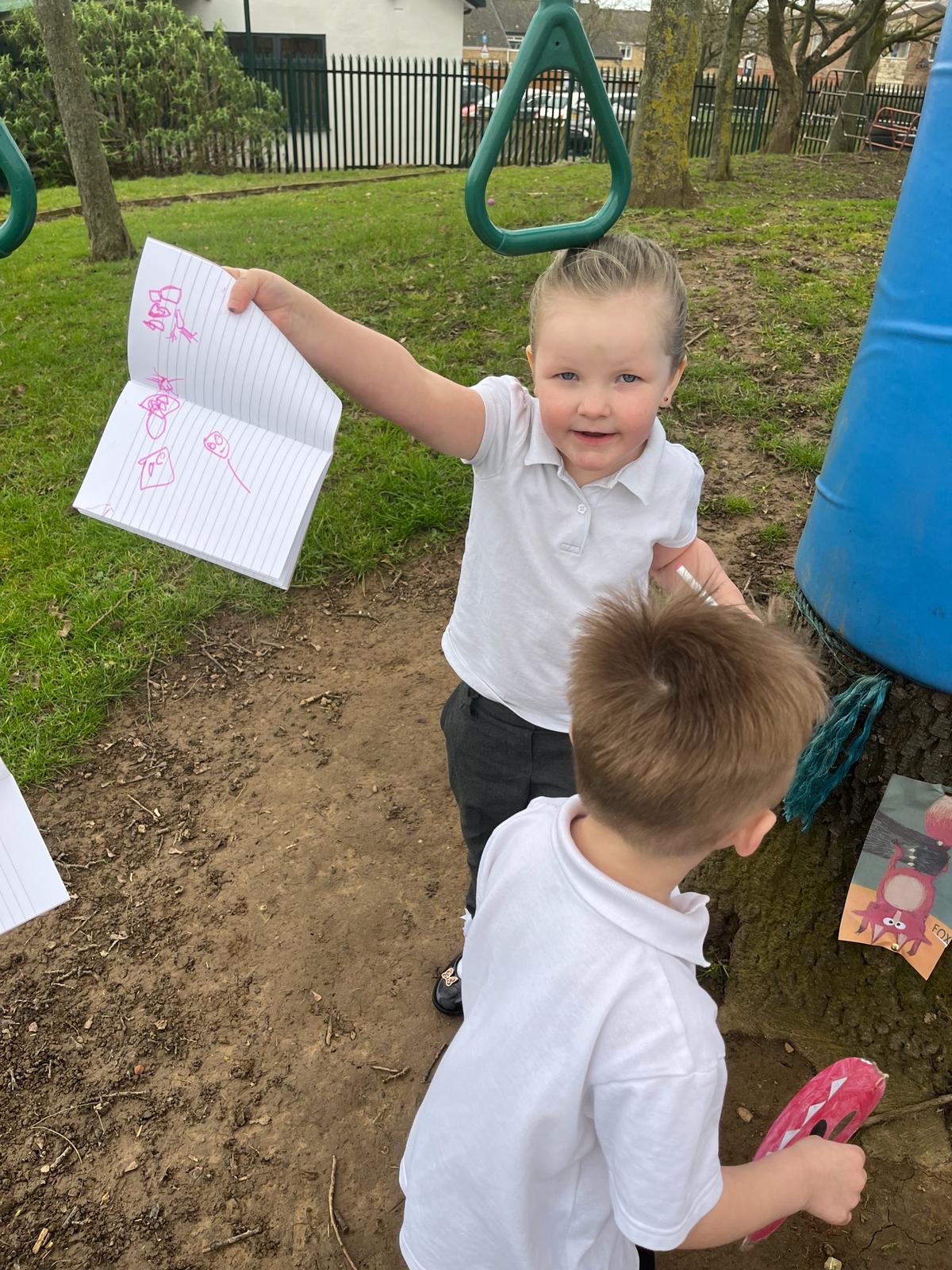 |
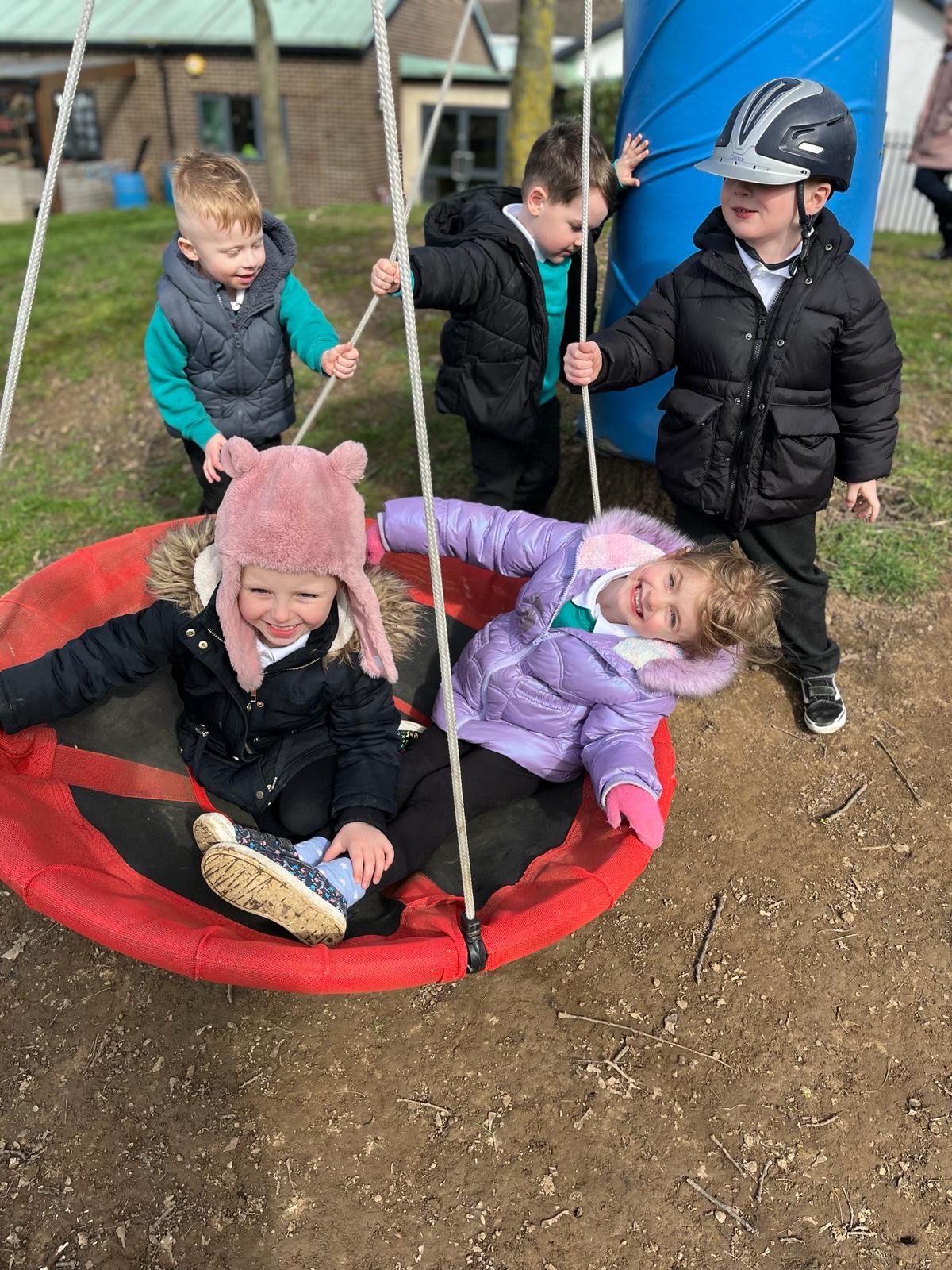 |
Early Years education focuses on seven areas of learning - these are equally important and inter-connected.
However, three areas known as the prime areas are seen as particularly important for igniting curiosity and enthusiasm for learning, and for building children’s capacity to learn, form relationships and thrive.
The prime areas of learning are...
CL Communication and Language
PD Physical Development
PSED Personal Social and Emotional development
The specific areas of learning are...
L Literacy
M Mathematics
EAD Expressive Arts and Design
UW Understanding the World
In EYFS children learn through a range of child-initiated play experiences and through adult directed activities both in and outdoors.
Children are supported to be active in their learning, develop resilience and critical thinking through first hand experiences.
We understand that books and storytelling experiences provide children with opportunities to develop listening, attention, imagination, language and creativity.
We have carefully developed our curriculum around a range of quality reading texts, both fiction and non-fiction to scaffold learning.
Alongside this music, arts and physical activities ensure that children have opportunities to develop their knowledge and understanding of the world. This is key to children’s daily provision in the setting.
Our curriculum provides the cultural capital we know our pupils need so that they can gain the knowledge, skills and understanding they require for success. Wherever possible, we go into our community to visit the woodland, local farms, theatre and immediate community to help children enrich experiences outside the classroom.
Staff also consider the individual needs, interests, and development stage of each child in their care and use this information to plan challenging and enjoyable experiences. In planning and guiding children’s activities, practitioners reflect on the different ways that children learn and include these in their practice.
Reading is at the heart of our curriculum. Children follow the rigorous and highly successful Sounds Write program faithfully. We follow the White Rose Maths Scheme; this approach has an emphasis on studying key skills of number, calculation and shape so that pupils develop deep understanding and the acquisition of mathematical language. These schemes help us to ensure that learning is carefully managed and that children are well-prepared for the next phase of their learning by the end of the Reception year.
Parents and care givers are invited in to school regularly to take part in themed days and workshops. Working in partnership between home and school is a key focus for the Early Years team. Keeping families informed of planned learning and achievements is done through sharing of newsletters, reading diaries and parent consultations.
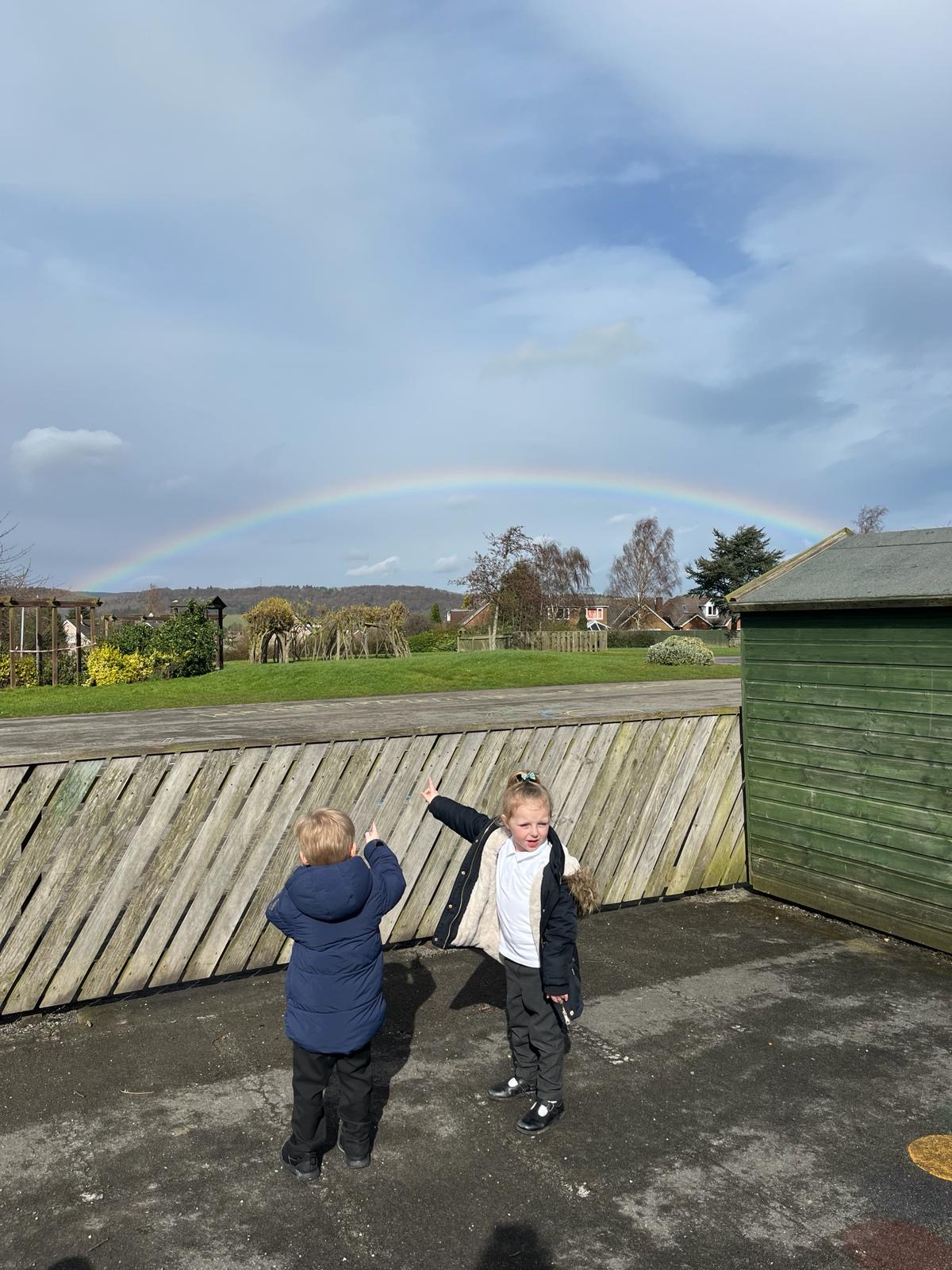 |
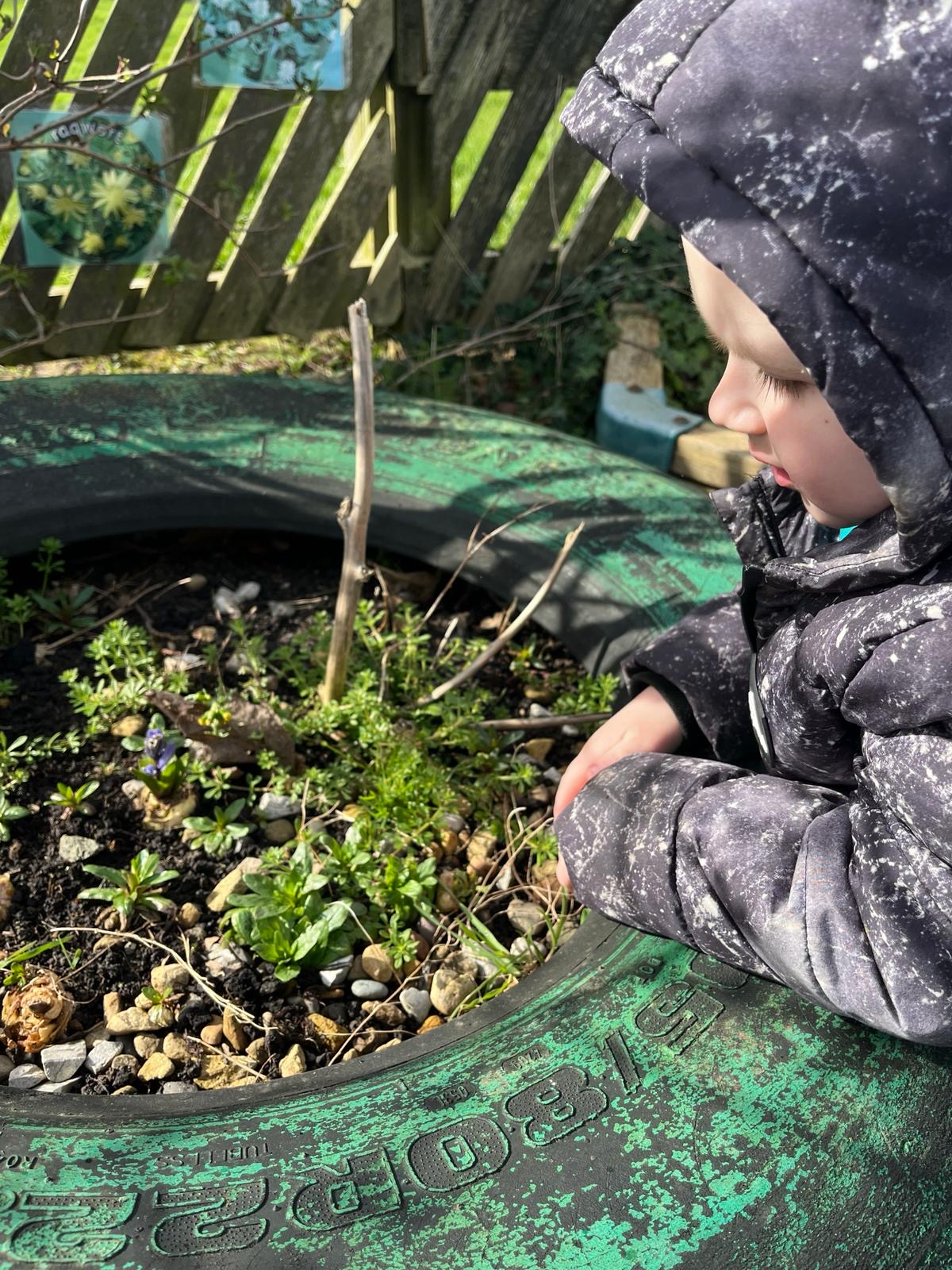 |
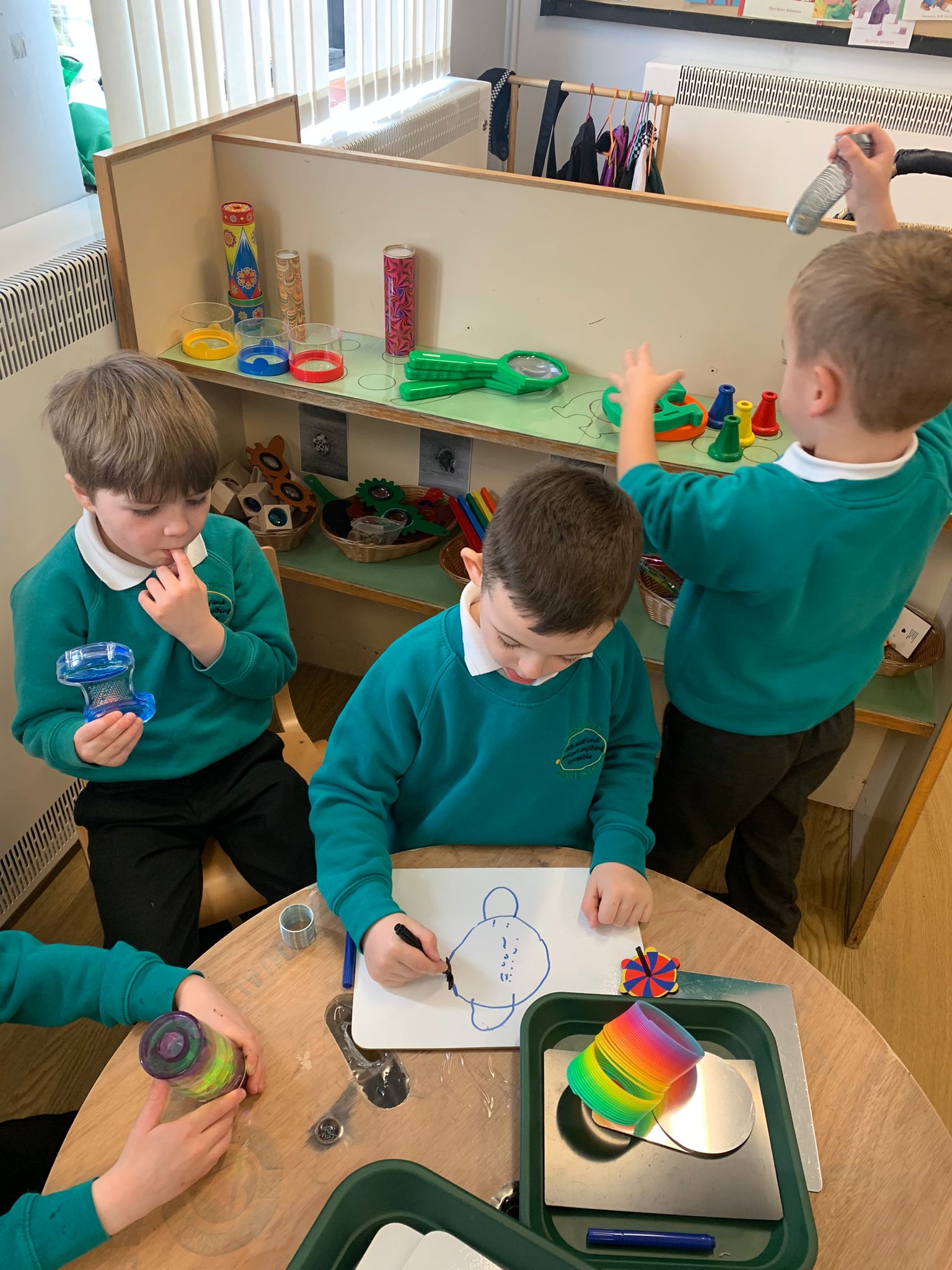 |
This is how we measure the effectiveness of our teaching and learning. From the point of starting school, we monitor and assess the progress of each learner in the key areas outlined above. When children achieve the national good level of development (GLD) at the end of the Reception year they are considered well prepared for the next phase of their learning and can access the National Curriculum from the beginning of Year One.
Through careful monitoring during EYFS we can plan and provide appropriate support and intervention for children who need additional support in a key area/s to help them close gaps in learning. We work alongside parents and caregivers, speech therapists and SEND professionals to identify need and support for children with additional needs. We run several intervention programmes called BLAST across both Nursery and Reception to support language and communication development. We also support gross and fine motor skills with Squiggle Whilst You Wiggle as well as pencil grip and cutting skills. Phonics, number and early reading skills are also part of our regular intervention support.
We pride ourselves on ensuring that every child, regardless of their starting point, disadvantage or SEND receive the best support possible to make progress through targeted support. Children in EYFS are encouraged to see themselves as capable, independent and valued for their effort.
Long Term Plans |
Newsletters |
| Nursery | Nursery |
| Reception | Reception |
Nursery |
Reception |
Nursery 1 |
Nursery 2 |
Reception |
Maths at Highcliffe
We use White Rose maths and follow the national programme of study:
Our mastery approach is focused around teaching for depth rather than breadth; concepts are taught to the class until the majority have mastered them, whilst also being presented with opportunities to deepen understanding through looking for patterns, making connections through solving calculations in a variety of ways, and drawing upon number sense to make generalisations and solve problems.
Although in many cases, all children will have the opportunity to access the same task, children working at greater depth would be expected to show greater independence when using strategies such as trial and error, systematic working and checking strategies (for example using the inverse to check).
Teachers draw on a range of resources to create the best possible learning environment for our pupils. It is expected that there will be reasoning as part of every lesson, although much of this will be oral. Talk partners will be used to enable the children to verbalise and discuss their understanding and depth of understanding will be provided through encouraging children to make connections, teach a friend, solve or use in a different way.
Classes are taught as mixed ability groups. Although the majority of children are in a mixed ability class, some children will be targeted to work in a smaller group with an adult. Our aim is to help these children make connections and give them a solid foundation, so that they can move towards working at a level closer to that of their peers. They may spend time revisiting earlier number concepts using CPA (Concrete, Pictorial and Abstract) approaches.